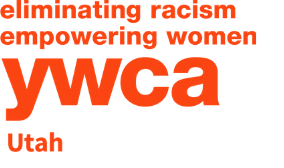Celebrating Pride Month and Juneteenth
This month, we celebrate Juneteenth and Pride Month in the midst of the ongoing fight against anti-Black racism and violence. As we worked on compiling this month’s content, we asked how can we use this moment to deepen our collective understanding of how Black Liberation is Queer Liberation. We hope the content we have curated will illuminate the similarities in two movements that are intimately connected in the struggle for both racial justice and LGBTQIA+ freedoms.
Historically, Black, queer and transgender communities have been at the forefront of racial justice and LGBTQIA+ movements. This is why many of the community organizing efforts are intersectional and often sprouted from grassroots organizing efforts. As Dr. Angela Davis said, “When movements center Black women, both cisgender and transgender justice becomes not only a conceptual option but a reality.”
Members of our internal Race Equity Workgroup have worked together with the aim to provide some opportunities to learn more about Juneteenth and to express the importance of celebrating Black and LGBTQIA+ joy, love, and excellence. Our content is not exhaustive, it is aimed to spark more curiosity, uplift some educational information and share opportunities to engage in various community events to eliminate racism, empower women, and promote peace, justice, freedom and dignity for all.
What is Juneteenth?: It took years after President Abraham Lincoln issued the Emancipation Proclamation in 1863 for enslaved Black people to be freed nationwide. Juneteenth celebrates June 19th, 1865, the day when the Union Army issued an order proclaiming the emancipation of enslaved Black people in Galveston, TX — a full two and a half years after President Lincoln took action. The name Juneteenth comes from a blending of the date.
Juneteenth became the date black community members celebrate emancipation, despite government agents having to travel from plantation to plantation for years after to free other Black people— all while enslavers continued to steal labor, knowledge, and skills. On this day, and for many years since, members of the African-American/Black community have celebrated the promise of liberation and a hope for freedom. This year in 2022, Utah finally signed into law the observance and recognition of Juneteenth as a state holiday thanks to the support Representative Sandra Hollins, Utah's first Black female legislature.
This video by the multi-talented Kat Blaque is a primer on the concept of “intersectionality,” a term popularized by legal scholar Kimberlé Crenshaw (1989) to describe the multiple and overlapping oppressions experienced by Black cisgender women.
“Consider an analogy to traffic in an intersection, coming and going in all four directions. Discrimination, like traffic through an intersection, may flow in one direction, and it may flow in another. If an accident happens in an intersection, it can be caused by cars traveling from any number of directions and, sometimes, from all of them. Similarly, if a Black woman is harmed because she is in the intersection, her injury could result from sex discrimination or race discrimination” (Crenshaw, 1989, p. 149).
Intersectionality has since come to describe the various marginalized identities a person may hold (for example, a person might be simultaneously queer, transgender, and a Black, indigenous, person of color, or QTBIPOC for short). These multiple forms of oppression shape individual experience and often impact a person’s access to material resources. Thus when we talk about Pride, we must center intersectional queer, transgender, and gender nonconforming folks, who often experience racism and other forms of discrimination and bias within mainstream LGBTQIA+ community.
"The Origin of Everything” series by PBS is created and hosted by Dr. Danielle Bainbridge, who received her Ph.D. in African American and American Studies from Yale University, and recently joined the African American Studies faculty at Northwestern University. This video provides a brief introduction to LGBTQIA+ and QTBIPOC history, specifically focused on the evolution of the modern Pride parade.
Some ways to support Juneteenth:
Across the county, many states and localities have taken action to declare racism a public health crisis and its time Congress did the same. Join in as YWCA USA kicks off the 15th Annual Stand Against Racism campaign and there are some action steps that you can take in order to further your advocacy efforts. Click the link and sign up today https://ywca.quorum.us/campaign/32462/
Keep learning, sign up today to take the 21-Day Challenge.
Some ways to support Pride Month:
Follow, donate to, and amplify organizations that support and serve QTBIPOC individuals and communities.
ThaBSVE - https://instagram.com/thabsve
The Audre Lorde Project - https://alp.org/about
Sylvia Rivera Law Project - https://srlp.org/
Black Trans Travel Fund - https://www.blacktranstravelfund.com/
TGI Justice Project - http://www.tgijp.org/
Brave Space Alliance - https://www.bravespacealliance.org/
National Queer and Trans Therapists of Color - https://nqttcn.com/en/
Bklyn Boi Hood - https://www.bklynboihood.com/
Project Q - https://www.projectq.me/
For the Gworls - https://www.forthegworls.party/
Marsha P. Johnson Institute - https://marshap.org/
Know Your Rights Camp - https://www.knowyourrightscamp.com/
Events happening this week around town:
Project Success Coalition: Juneteenth Utah Freedom and Heritage Festival Weekend. See overview for events in Ogden, Salt Lake City, and Sandy.
Utah Division of Multicultural Affairs: View a more comprehensive list of Juneteenth festivities in Salt Lake County, here.
